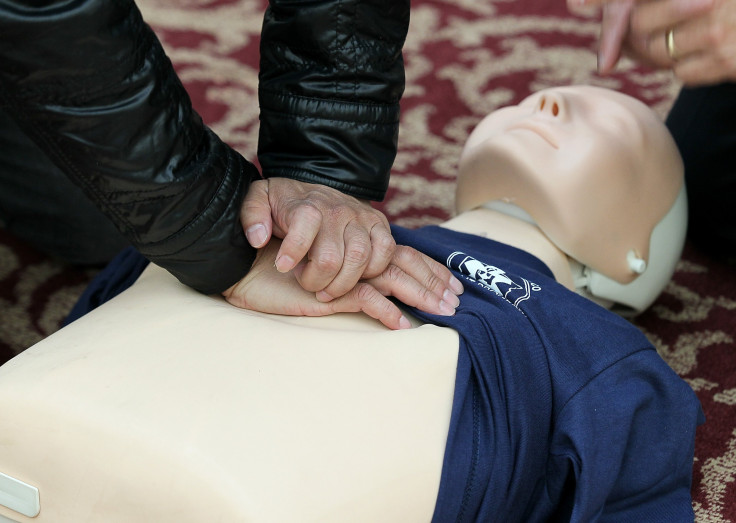Nurse Suffers Heart Attack In Hospital, Diagnoses And Treats Self

An Australian nurse who sensed he was having a heart attack took necessary measures to save his own life.
The 44-year-old man, whose name has been withheld for security reasons, was the only medical professional on duty at a nursing post in Coral Bay, Western Australia, when he started experiencing chest pain and dizziness, South China Morning Post reported.
Since the next medical facility was 150 kilometers away and no one else was around to help him out, he decided to treat his own heart attack.
The first thing the man did was perform an electrocardiogram (EKG), which revealed that the male nurse had a complete heart blockage – the result of a developing heart condition. A second EKG confirmed the fact that the man was indeed suffering from a heart attack.
Using the Emergency Telehealth Service (ETS), he emailed the results to a doctor and connected to an emergency physician who was willing to help him out. Next, he inserted intravenous (IV) lines in both his arms and self-administered medications such as aspirin, blood thinners, painkillers and tenecteplase, a clot-dissolving drug.
“It was quite genius to be able to do all these things,” said Brandon Godbout, vice chair of the emergency department at Lenox Hill Hospital in New York. “When nobody else is around, what do you do? This person seemed to have quite good experience in emergency care, based on their confidence in managing this severe situation.”
Godbout also praised the nurse for opting for tenecteplase, which he believed was “crucial to dealing with these sorts of emergencies”.
According to RxList, the internet drug index for prescription drugs and medications, “TNKase® (Tenecteplase) is indicated for use in the reduction of mortality associated with acute myocardial infarction (AMI). Treatment should be initiated as soon as possible after the onset of AMI symptoms.”
The nurse did not stop with only taking the right medications. He also attached defibrillator pads on himself and prepared adrenaline, atropine, and amiodarone – drugs which are required to correct the heart rhythm. Gradually, the heart attack subsided.
Emergency services had arrived by then and he was flown to a cardiology center in Perth, where he received a stent and additional drugs to manage his heart condition. He was discharged from the hospital two days later.
In the New England Journal of Medicine, where the case was first published, medical staffer Felicity Lee and her colleagues at Sir Charles Gairdner Hospital in Nedlands, Western Australia, warned readers that while the nurse — a highly trained professional — was able to take the necessary measures to prevent his own heart attack, it is not something that is recommended to patients with no medical expertise.
"A person's self-management of a [heart attack] cannot be considered medically appropriate if any other option is available,” Lee and her colleagues wrote, HealthDay reported.
"Do not try to watch a You Tube video and do this on your own! Heart disease is still the leading cause of death and requires expert attention," said Dr. Cindy Grines, chair of cardiology at North Shore University Hospital in Manhasset, New York.
© Copyright IBTimes 2024. All rights reserved.






















